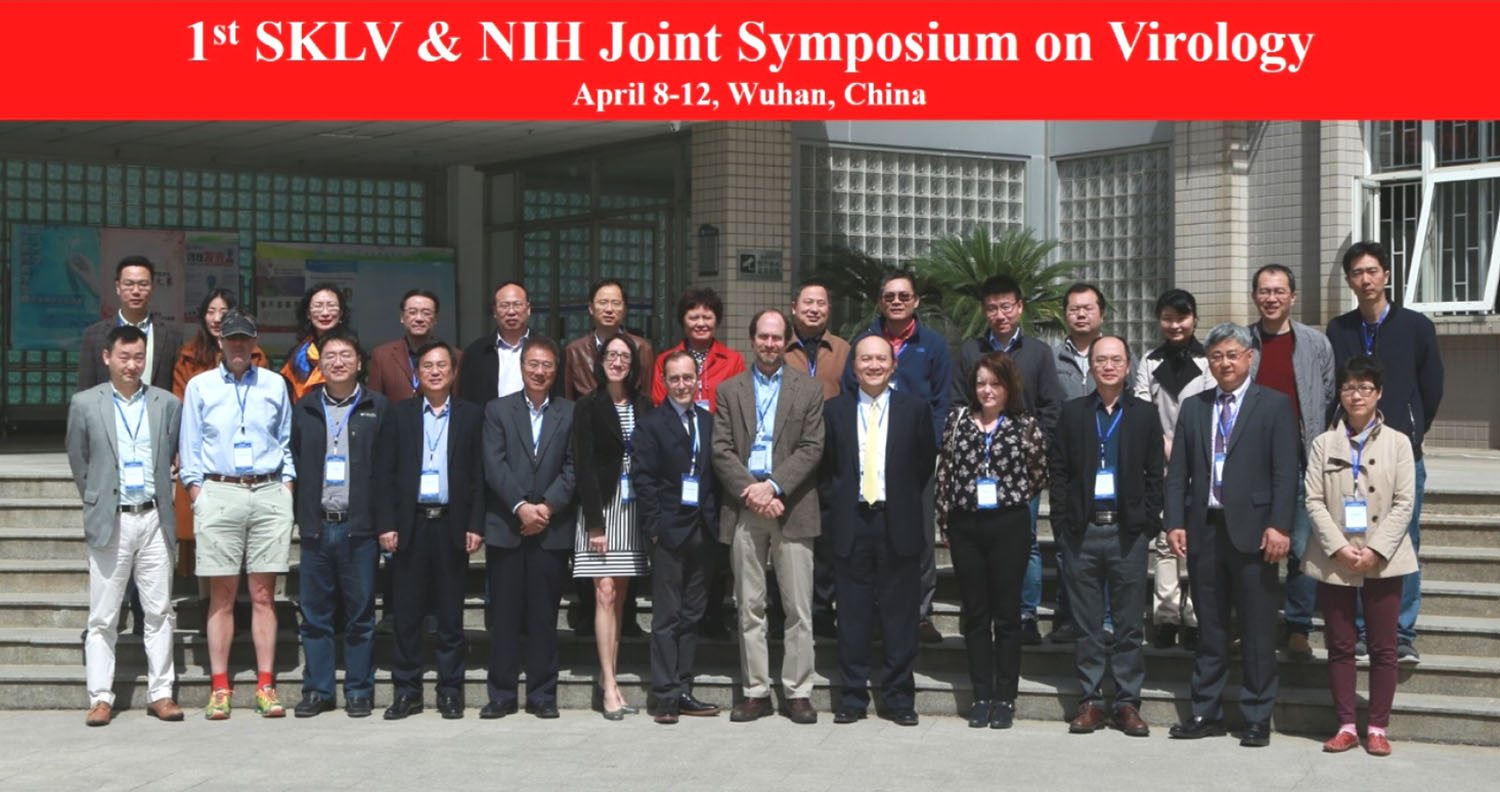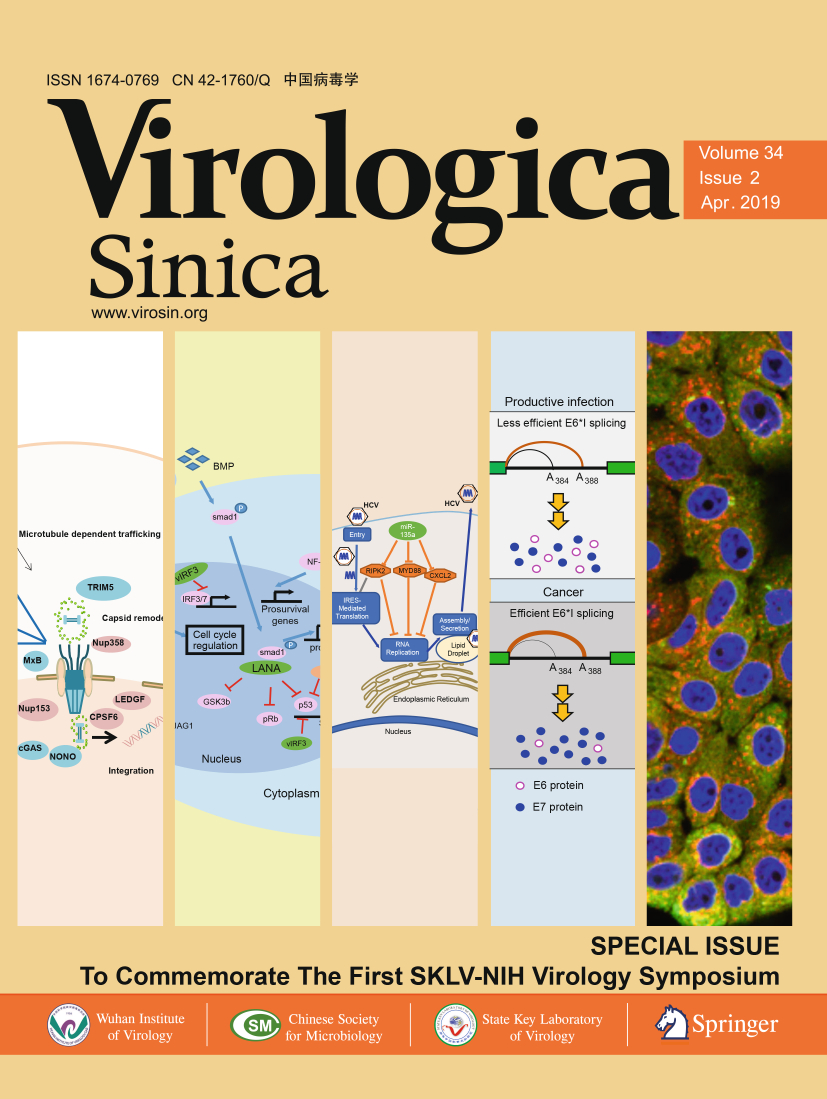-
Viral infections remain a global threat to world health in the twenty-first century. They are caused by both DNA and RNA viruses and can manifest as acute or chronic infections, in some cases causing epidemics or even global pandemics. Persistent viral infections lead to host immunodeficiency and the development of ~ 12% of human cancers worldwide. Viral infections in animals can spread to humans and cause human disease; such zoonotic events have become increasingly frequent as a result of close contact in modern society due to globalization, industrialization and environment changes. In facing these challenges, both developed and developing countries, including China and the US, spend billions of dollars annually to support basic virology research and to develop effective strategies to prevent, treat, and cure viral infections. The establishment of the State Key Laboratory of Virology (SKLV) in 2004, the year that followed the outbreak of SARS in China, highlights this great effort by the China central government with joint sponsorship of Wuhan University and Wuhan Institute of Virology, Chinese Academy of Sciences. The SKLV conducts high-level basic and applied research focusing on the viruses that cause major and severe infectious diseases, aiming to develop new strategies for prevention, diagnosis and treatment of viral diseases.
To promote awareness of the existing or emerging virus threats, and to encourage open scientific exchange and data sharing between China and the US for the benefit of global health, Dr. Zhi-Ming Zheng, Senior Investigator and Chief of the Tumor Virus RNA Biology Section, RNA Biology Laboratory, the US National Cancer Institute (NCI) of the National Institutes of Health (NIH) and Dr. Ke Lan, Professor and Director of China SKLV, initiated in 2017 discussions to establish a virology exchange program between the SKLV and NIH. At the invitation by Dr. Ke Lan of SKLV, a delegation consisting of eight renowned virologists from three different NIH institutes, co-led by Dr. Zhi-Ming Zheng and Dr. Eric Freed, Senior Investigator and Director of the HIV Dynamics and Replication Program of the NCI, paid the first visit on April 8–12, 2018, to SKLV, Wuhan, China where the virologists from the SKLV had been long waiting. The other NIH team members included Dr. Jake Liang, Senior Investigator and Chief, Liver Diseases Branch, National Institute of Diabetes and Digestive and Kidney Diseases (NIDDK); Dr. Jonathan Yewdell, Senior Investigator and Chief, Cellular Biology Section, Laboratory of Viral Diseases, National Institute of Allergy and Infectious Diseases (NIAID); Dr. Daniel Douek, Senior Investigator and Chief, Human Immunology Section, Immunology Laboratory, Vaccine Research Center, NIAID; Dr. Sonja Best, Senior Investigator and Chief, Innate Immunity and Pathogenesis Section, Laboratory of Virology, NIAID; Dr. Tongqing Zhou, Chief, Structural Bioinformatics core Section, Virology Laboratory, Vaccine Research Center, NIAID; and Dr. Natalia de Val, Director, Electron Microscopy Laboratory, NCI. During the visit in Wuhan, the first SKLV–NIH Joint Symposium on Virology was successfully held for 2 days (Fig. 1). Experts from both sides shared their expertise and knowledge on several important human viral pathogens, including human immunodeficient virus (HIV), hepatitis B virus (HBV), hepatitis C virus (HCV), Kaposi's sarcoma-associated herpesvirus (KSHV), Coronaviruses, flaviviruses, enteroviruses, etc. Research frontiers on virus-host interactions and RNA granules, host immunity against viral infections, and current topics on viral vaccines were extensively discussed, and experiences on combating related chronic and emerging viral diseases were exchanged. Through the scientific symposium and the following one-to-one in-depth meetings, scientists from both sides have strengthened mutual understanding, which laid the groundwork for establishing potential collaborations in the future. As anticipated, the successful symposium and bilateral open discussions have established the foundation for future periodic exchanges and long-term virology collaborations between the SKLV and NIH.

Figure 1. Group photo of the scientists attending the 1st SKLV and NIH Joint Symposium of Virology. Front Row (L to R): Mingzhou Chen (Wuhan University), Jonathan Yewdell (NIAID), Xi Zhou (Wuhan Institute of Virology), Jianguo Wu (Wuhan University), Zhi-Ming Zheng (NCI), Natalia de Val (NCI), Daniel Douek (NIAID), Eric Freed (NCI), Jake Liang (NIDDK), Sonja Best (NIAID), Ke Lan (Wuhan University), Tongqing Zhou (NIAID), Zhengli Shi (Wuhan Institute of Virology). Back row (L to R): Yu Chen (Wuhan University), Ying Wu (Wuhan University), Fang Liu (Wuhan University), Rui Gong (Wuhan Institute of Virology), Zhijian Cao (Wuhan University), Haibing Zhou (Wuhan University), Xiaolian Zhang (Wuhan University), Ying Zhu (Wuhan University), Chaoyang Li (Wuhan Institute of Virology), Ke Peng (Wuhan Institute of Virology), Ding Gao (Wuhan Institute of Virology), Yu Liu (Wuhan University), Bing Tang (Wuhan University), Peng Gong (Wuhan Institute of Virology).
We are pleased to present this year's April issue of Virologica Sinica as a special issue to commemorate the first joint SKLV–NIH Virology Symposium. In this issue, we collectively present nine high-quality articles contributed by experts from both sides, which covers the most recent progress on the important viruses studied in their laboratories. We extend special thanks to the authors of the contributed articles, as well as the scientists participating in the SKLV–NIH joint symposium. It is our sincere hope that readers will find useful information in this special issue, and that it will inspire new studies to further advance our knowledge in virology. We also hope that this special issue will encourage new collaborations between virologists based in China and the US.
Preface
- Published Date: 23 April 2019
Abstract:














 DownLoad:
DownLoad: